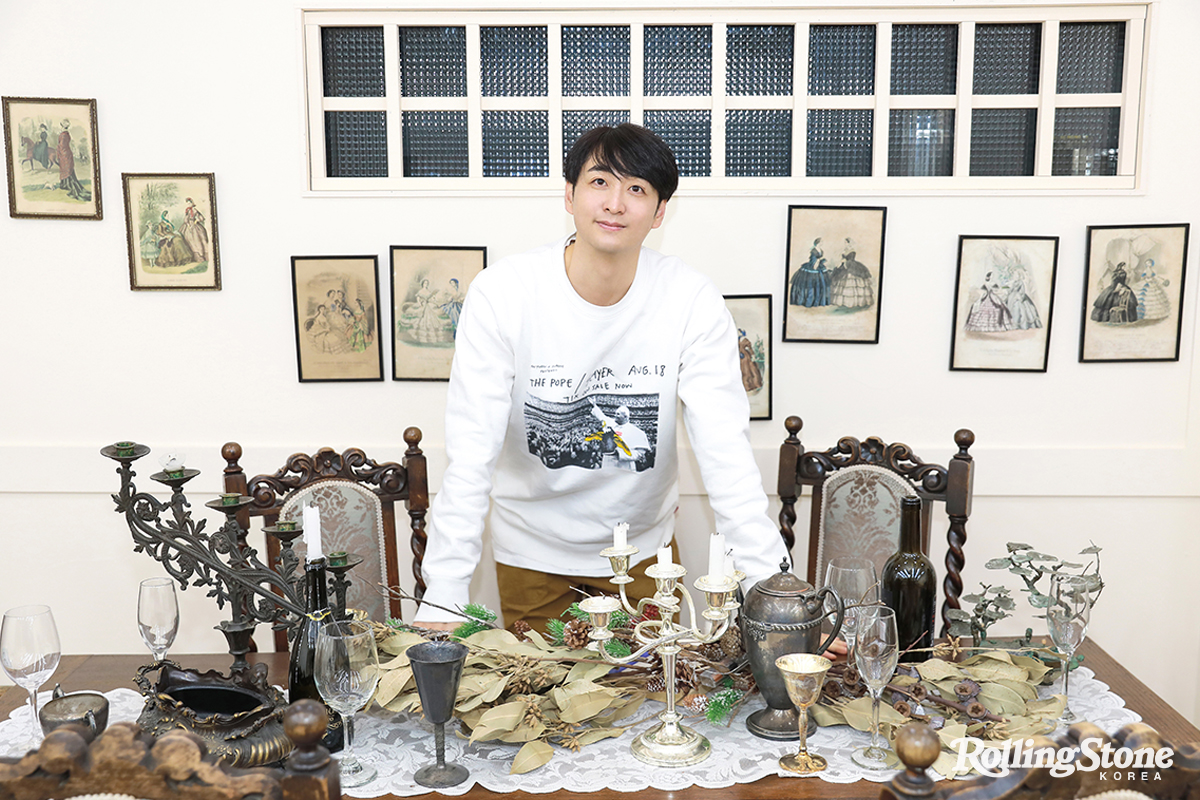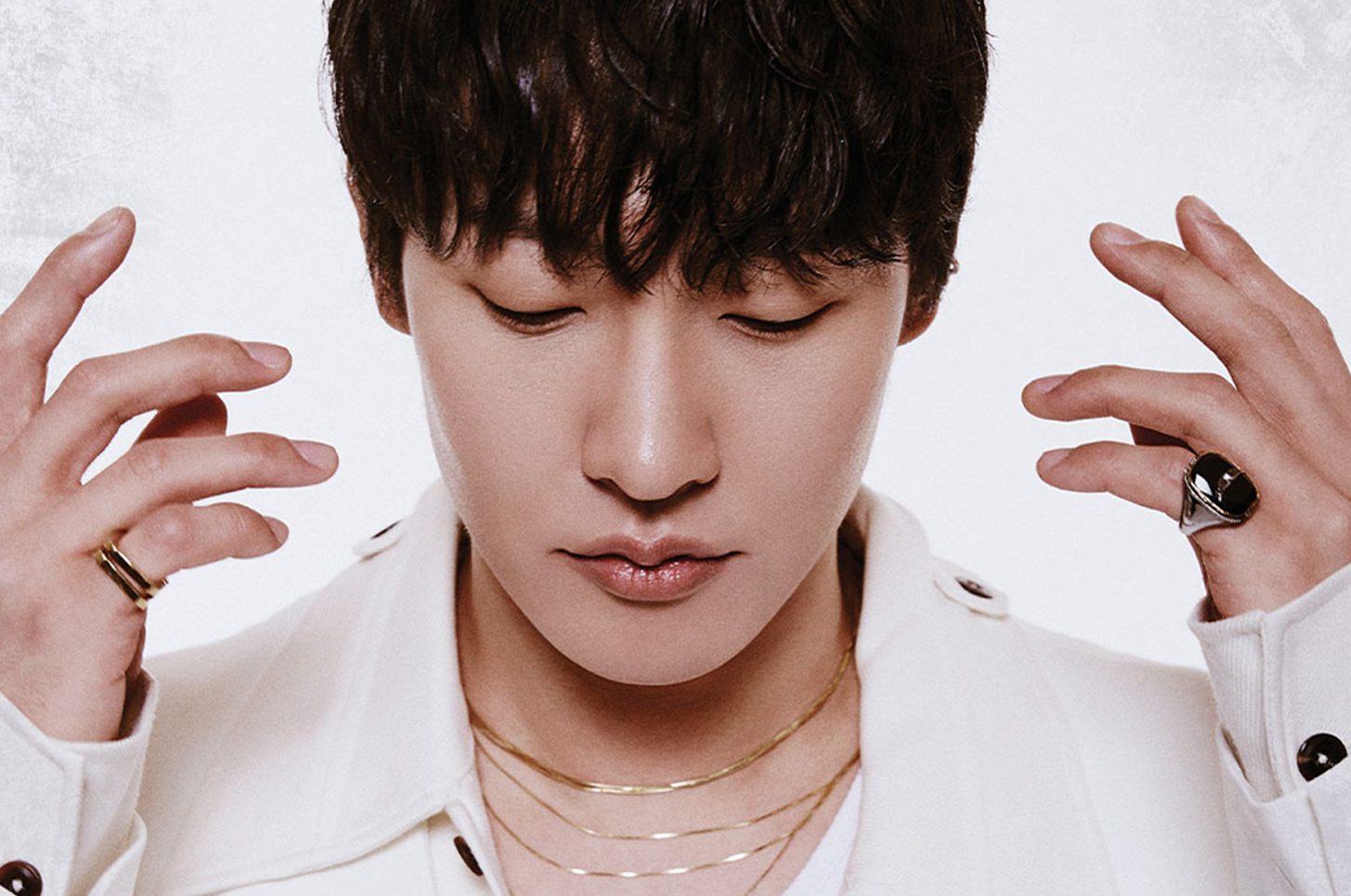Kim Joon-ho, another star leading the K-pop stage
There are various factors that make the massive industry called K-pop go around, but stage production is an aspect that we can never leave out. Even if an artist has songs, dances, makeup and outfits, at the end of the day, they cannot do anything without stage direction.
When an artist intends to perform, they need a scenario. And in order to support that scenario, they need help from the technical area. An artist’s voice cannot be heard without a sound crew, and they cannot be seen without a lighting crew.
Moreover, their performance cannot shine without stage effects. And there is a control tower ran by a single person who manages all these tangible and intangible elements.
Director Joon-ho Kim is a veteran who has been in charge of stage production for a countless number of K-pop artists, and he is undeniably in the lead in the field of stage production in Korea. Though he is working in an area that is easily overlooked by K-pop fans, everyone who works in this industry is aware of how essential the role of the executive producer is in making a star shine.
Stars rarely shine on their own in the universe. Most of them merely reflect the light they receive from another star with a bright light, and we see the shape of the star through that reflected light, here on Earth. Then would it not be the same for stage performances? Now, we have heard the secret to making stars shine brighter from Director Joon-ho Kim, the person who makes the stars in this K-pop universe shine brighter.
Pleased to meet you, Director Joon-ho Kim. First, please greet and introduce yourself to the subscribers of Rolling Stone Korea.
Hello, subscribers of Rolling Stone Korea. I hope the useful information and the various sources of entertainment you seek to get from the musical and artistic medium of Rolling Stone Korea would serve to console you at least a little in these difficult times. Also, a sincere congratulations to Rolling Stone Korea again for your domestic launching.
We would like to hear about how you had come to get started in stage production, among all the various areas of art.
Actually, I majored in theatre stage production at university, and as I have always liked music since I was young, I think I grew up with a natural inclination towards becoming a stage producer for musicals and music-related performances.
I have been producing plays and other performances since before, but after working as the executive producer for WA-POP (a stage that combines concerts, K-drama series and Korean contents), which was a performance with a story that was produced by a large business in 2013, I received a lot of offers from various local production companies, so I have come to work as an executive producer for concerts, as I am doing now.
In your opinion, what makes the job of a stage producer attractive?
There must be various other project-based jobs with a start and an end, but a performance has a definite start and an end. And the pain of creation where I have to produce the result that blooms at the end accurately can be extremely burdening and exhausting. However, after the lights go off in the auditorium, whether we hear a roaring cheer or a silence, there’s the pleasure coming from that moment. And by showing the audience the new, never-before-seen stage directions that I have produced, I can feel all the pain go away with the audience’s responses, their empathetic laughter, their cheer and their tears. I would say that this aspect is the greatest charm of being a stage producer
There must have been many memorable moments and trivia, as a lot of your work gets proceeded live urgently, including the work of directing and producing the stage. Is there a trivia that comes to mind right now?
Frankly, there are so many, but among those, there was a time when we had executed a scene where we used a flying device on stage facing the auditorium during MAMAMOO’s concert in 2019. The members would ride the device, or SOLAR, a member of MAMAMOO, would hold the rope with her hands to fly in the air.
On Day 2, there was this scene where a video gets played in the middle of the concert and the members ride the flying device to appear as a surprise, but I had suddenly been informed by the stage director through the two-way radio that there was a problem with the device and the artists could not ride it.
If we could not use that device in the remaining minute and half, not only could the artists fail to perform that song, but the overall transition would also proceed in a mess. So we had connected it to a different scene, come up with the surprise appearance in another part, thought up various options within the minute to calm the artists down behind the stage and organized a different production plan, but the device worked with just 10 seconds remaining, so there was this chilling memory where we managed to proceed with the original plan.
As such, we always seem to be on edge and dealing with a performance with a love and hate relationship, worrying about not doing a performance we have prepared or encountering a problem more than we are enjoying the stage.
The audience doesn’t know, but these behind-the-scenes stories only we know about…. Each and every one of these is a trivia.
Had you not chosen this path when you were at a crossroads, what kind of a life do you think you would be living right now? Have you ever thought about this?
I think I would be writing scenarios or scripts. I neither enjoy nor am talented at writing for these interviews about me or writing about something logical, but writing scenarios or scripts in a quiet place is such a blissful experience for me.
As far as I know, you have recently produced the contact-free concerts of MAMAMOO and many other idol singers. We would like to hear about the aspects you have focused on the most in order to deliver the liveness of the performance to the audience all over the world.
Yes, that is correct. Recently, in these COVID times, we proceed with the concerts contact-free. Though we cannot present the sense of liveness at the scene to our audience in its entirety, we strive to communicate indirectly with our audience through various methods, like setting up the stage with the artist’s room, or executing the performance from the first-person view. I believe that this is the aspect that brings out the strength of the contact-free concerts to the fullest.
It goes without saying that the feel of a performance would vary upon how you produce it, but I imagine that each group of audience would also produce a different vibe. We would like to hear your thoughts on the live energy the audience produces at a concert.
I have already mentioned this earlier, but I think this energy is the reason I work in stage production. Any response we get from the audience is a feedback based on the intentions behind what we have shown them, so it always feels new, and I think this energy inspires me.
A performance has a climax, right. If you were to liken your life to a performance, around which stage do you think you are in now? How would you like to direct and produce your life from now on?
Unlike most other producers, I produce for a variety of genres. There are quite a number of directors who also produce plays and movies, but I am working on various areas, like plays, movies and concerts. I have recently written and produced a movie scenario myself, too.
I think the climax in my life would be when I create greater work, and I wish to direct and produce my life in the way of thinking endlessly, coming up with ideas, writing to express and demonstrate to work towards that climax at all times.
As the cultural interaction of K-pop became vigorous and the number of concerts and performances increased, I feel that the role of a production director, of a performance director is being acknowledged in a more mainstream way by many people. Do you have any words for the aspirants who are constantly dreaming and fiercely taking on challenges even now, as someone who has already been working in the field of production?
There is no right answer when it comes to producing. However, if you cannot develop a consensus with the audience, it may end up as a creation solely for yourself. When producing a popular production, I believe that you can become a good producer by sparking up the ember of creativity while always keeping in mind that you must come up with your very own ideas to produce a result that can please your audience, rather than just yourself. I, too, and striving to do so, despite being flawed and imperfect.
It has been a pleasure to have a conversation with you through this interview with Rolling Stone Korea. Thank you!
The pleasure was mine. Thank you.
PHOTOGRAPHS BY LEE DAE WOONG










